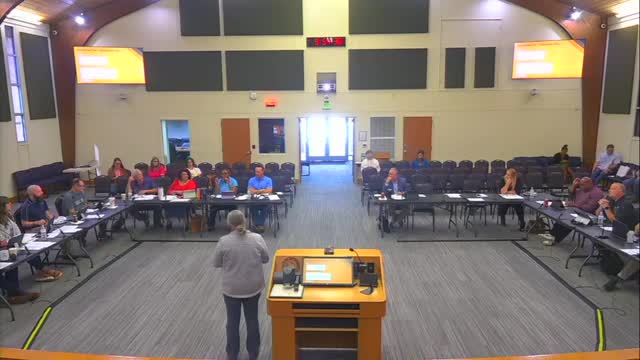Proposal to Revamp Pay Structure Sparks Controversy
August 02, 2024 | Schertz, Bexar County, Texas
This article was created by AI summarizing key points discussed. AI makes mistakes, so for full details and context, please refer to the video of the full meeting. Please report any errors so we can fix them. Report an error »

During a recent government meeting, officials discussed significant changes to employee compensation structures, focusing on base pay, bilingual pay, and certification pay. The conversation highlighted the need for a more straightforward approach to compensation, emphasizing that employees should be paid according to their market value rather than navigating complex certification requirements.
One participant argued for a system that compensates employees based on their worth in the job market, suggesting that this would eliminate the need for detailed scrutiny of qualifications and certifications. The speaker noted that if the job market dictates a certain pay scale, municipalities should align their compensation accordingly to remain competitive. This perspective was echoed by others who expressed frustration with the current system, which they felt was overly complicated and often led to dissatisfaction among employees seeking additional pay for certifications.
The meeting also addressed the introduction of bilingual pay, which would provide financial incentives for employees who engage with the public in multiple languages. This initiative is seen as a valuable addition to the incentive pay program, with an estimated implementation cost of $16,000. Officials confirmed that public safety positions, including police and fire departments, would be prioritized for this pay structure, recognizing the importance of bilingual skills in these roles.
Additionally, the discussion included updates on canine handler compensation, which has shifted from an overtime model to a flat biweekly stipend. This change aims to streamline payments and align with industry standards for canine handlers.
Overall, the meeting underscored a commitment to enhancing employee compensation by simplifying pay structures and ensuring that remuneration reflects the skills and certifications of the workforce. The proposed changes are expected to foster a more equitable and competitive environment for municipal employees.
One participant argued for a system that compensates employees based on their worth in the job market, suggesting that this would eliminate the need for detailed scrutiny of qualifications and certifications. The speaker noted that if the job market dictates a certain pay scale, municipalities should align their compensation accordingly to remain competitive. This perspective was echoed by others who expressed frustration with the current system, which they felt was overly complicated and often led to dissatisfaction among employees seeking additional pay for certifications.
The meeting also addressed the introduction of bilingual pay, which would provide financial incentives for employees who engage with the public in multiple languages. This initiative is seen as a valuable addition to the incentive pay program, with an estimated implementation cost of $16,000. Officials confirmed that public safety positions, including police and fire departments, would be prioritized for this pay structure, recognizing the importance of bilingual skills in these roles.
Additionally, the discussion included updates on canine handler compensation, which has shifted from an overtime model to a flat biweekly stipend. This change aims to streamline payments and align with industry standards for canine handlers.
Overall, the meeting underscored a commitment to enhancing employee compensation by simplifying pay structures and ensuring that remuneration reflects the skills and certifications of the workforce. The proposed changes are expected to foster a more equitable and competitive environment for municipal employees.
Don't Miss a Word: See the Full Meeting!
Go beyond summaries. Unlock every video, transcript, and key insight with a Founder Membership.
✓
Get instant access to full meeting videos
✓
Search and clip any phrase from complete transcripts
✓
Receive AI-powered summaries & custom alerts
✓
Enjoy lifetime, unrestricted access to government data
30-day money-back guarantee

